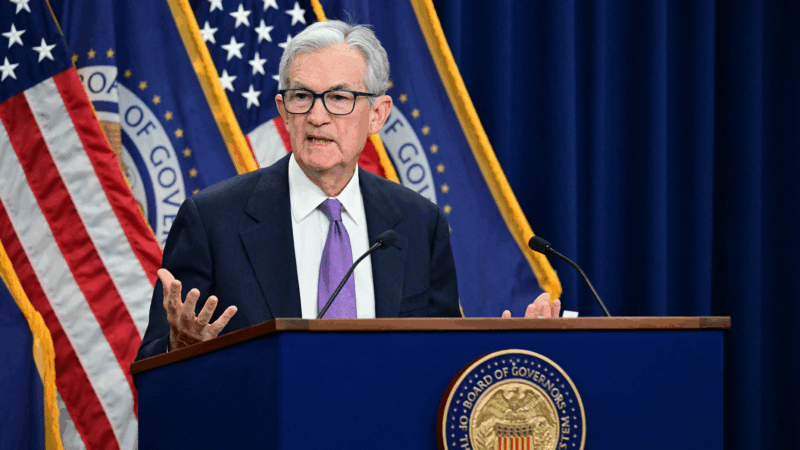The GOP’s massive bill would add trillions of dollars to the country’s debt
The massive tax cut and spending bill passed by the Senate this week is expected to add trillions of dollars over the next decade to an already hefty federal debt.
The precise level of additional red ink depends on the forecast. The Yale Budget Lab says it would add $3 trillion over the next 10 years, while the Congressional Budget Office (CBO) estimates it would add $3.4 trillion. Meanwhile, the Committee for a Responsible Federal Budget puts the total at $4 trillion or more.
But bean counters all agree: The measure, if passed, would push the government’s finances even further out of balance. The bill now heads back to the House, which had passed a somewhat different version earlier this year.
“The level of blatant disregard we just witnessed for our nation’s fiscal condition and budget process is a failure of responsible governing,” said Maya MacGuineas, president of the Committee for a Responsible Federal Budget. “These are the very same lawmakers who for years have bemoaned the nation’s massive debt, voting to put another $4 trillion on the credit card.”
Lower taxes, little boost to growth
The bill would extend tax cuts from the first Trump administration and add additional tax breaks, reducing government revenues. The measure also increases government spending on defense and immigration enforcement. While it makes cuts to spending on Medicaid and food assistance, those cuts offset only a fraction of the bill’s total cost.
At the same time, the measure is expected to do little to boost economic growth. CBO has not yet estimated the economic effects of the Senate bill. But an earlier House version was found to provide only modest economic gains, which were dwarfed by the cost of higher interest payments.
Most of the savings from the House bill’s tax cuts were expected to flow to the richest taxpayers, while people at the bottom of the income ladder would be worse off, since any tax savings would be outweighed by lost government benefits.
On average, people earning less than about $55,000 a year would be net losers from the House bill, according to the CBO forecast. Middle-income taxpayers would save between $500 and $1,000 a year, while the top 10% would see gains of about $12,000.
Judge rules 7-foot center Charles Bediako is no longer eligible to play for Alabama
Bediako was playing under a temporary restraining order that allowed the former NBA G League player to join Alabama in the middle of the season despite questions regarding his collegiate eligibility.
American Ben Ogden wins silver, breaking 50 year medal drought for U.S. men’s cross-country skiing
Ben Ogden of Vermont skied powerfully, finishing just behind Johannes Hoesflot Klaebo of Norway. It was the first Olympic medal for a U.S. men's cross-country skier since 1976.
An ape, a tea party — and the ability to imagine
The ability to imagine — to play pretend — has long been thought to be unique to humans. A new study suggests one of our closest living relatives can do it too.
How much power does the Fed chair really have?
On paper, the Fed chair is just one vote among many. In practice, the job carries far more influence. We analyze what gives the Fed chair power.
In a world built for sitting, here’s how to stay active — even when stuck inside
In the office, classroom and living room, working and relaxing mean sitting still. Our bodies evolved without chairs. Here are some tips for getting out of your seat and moving — even on cold days.
‘Please inform your friends’: The quest to make weather warnings universal
People in poor countries often get little or no warning about floods, storms and other deadly weather. Local efforts are changing that, and saving lives.








